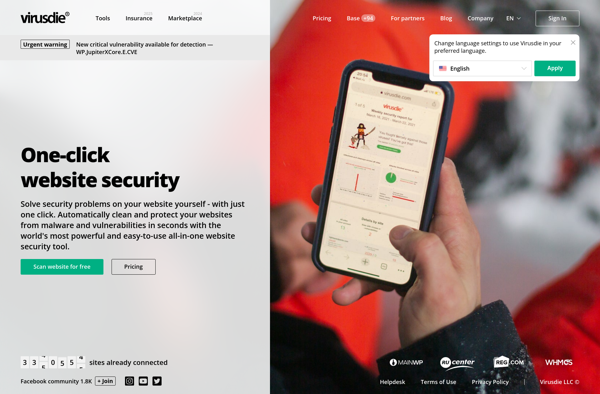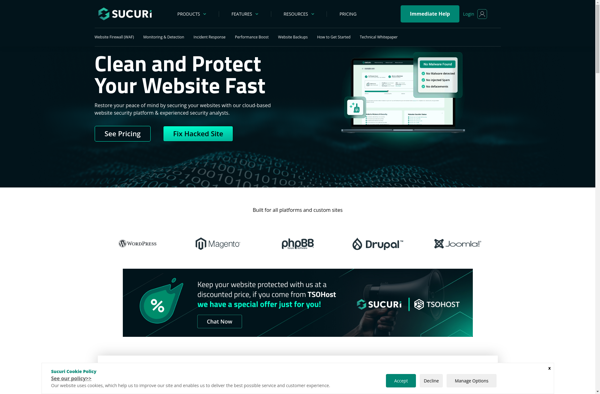Website Scanning Tools
Website Scanning Tools: Analyze Websites for Security & Issues
Website scanning tools analyze websites for security vulnerabilities, broken links, spelling errors, and other issues. They crawl through sites to detect problems and generate reports.
What is Website Scanning Tools?
Website scanning tools are automated applications that analyze websites to uncover technical issues, security vulnerabilities, broken links, accessibility problems, spelling and grammar errors, and more. These tools crawl through websites, following links and scraping pages, in order to detect any problems that may impact a site's performance, security, search engine optimization, and user experience.
There are many types of scanning tools available, some specializing in specific tests while others offer a range of website auditing capabilities. Common features include broken link checking, HTML validation, accessibility scanning, SEO analysis, malware detection, SSL configuration checks, and identifying other security flaws like cross-site scripting vulnerabilities or SQL injection issues. Scans can be run on demand or on a recurring schedule.
After completing scans, these tools generate detailed reports highlighting any discovered problems. Website owners and developers can use these reports to troubleshoot and resolve the findings in order to improve their websites. Some tools even suggest specific fixes for each discovery or integrate with site editing platforms to enable rapid remediation.
Overall, website scanning services provide automated and efficient auditing to help uncover technical, security, and user experience deficiencies. Fixing these can improve search engine performance, protect sites from hackers, and ensure all visitors have access to flawless and secure website experiences.
Website Scanning Tools Features
Features
- Website crawling and scanning
- Security vulnerability detection
- Broken link checking
- Spelling and grammar error detection
- Site performance analysis
- Customizable scanning profiles
- Detailed reports and dashboards
- Real-time monitoring and alerts
Pricing
- Free
- Freemium
- Subscription-Based
Pros
Cons
Official Links
Reviews & Ratings
Login to ReviewThe Best Website Scanning Tools Alternatives
Top Security & Privacy and Website Security and other similar apps like Website Scanning Tools
Here are some alternatives to Website Scanning Tools:
Suggest an alternative ❐Virusdie

Sucuri
